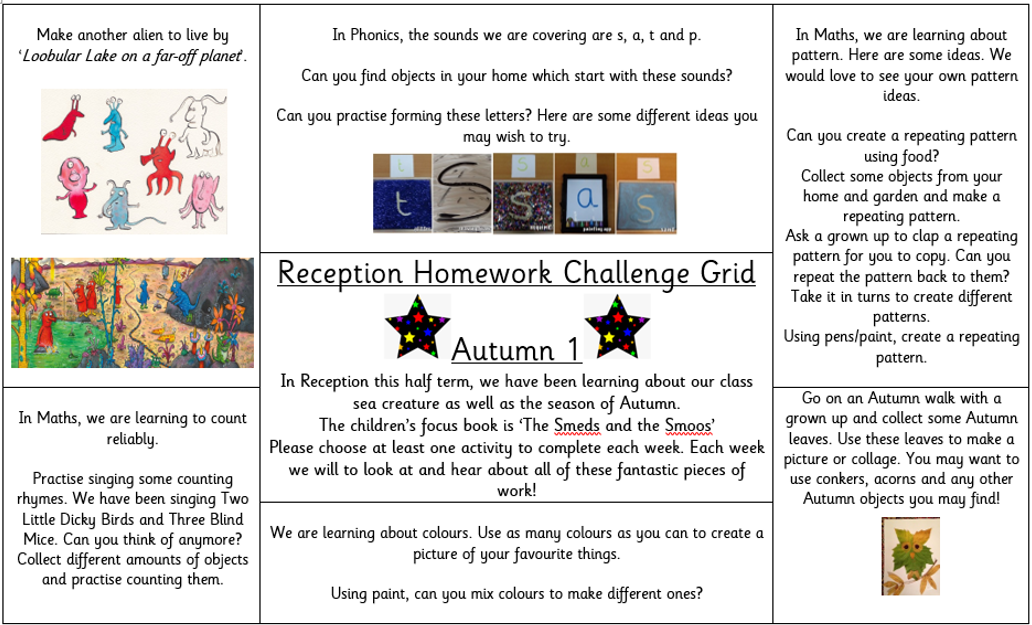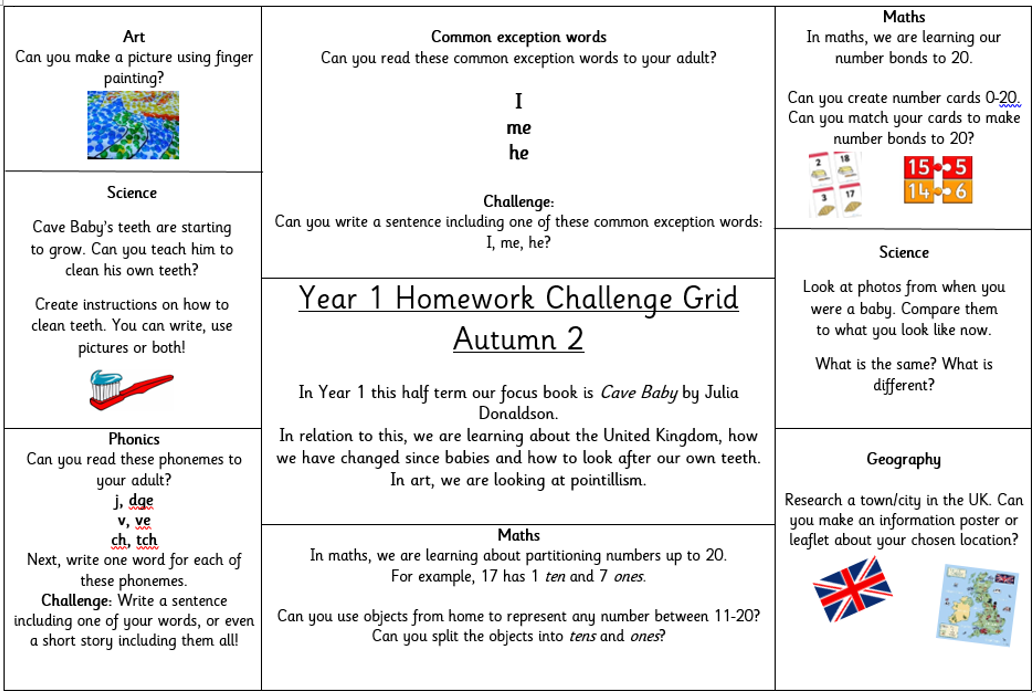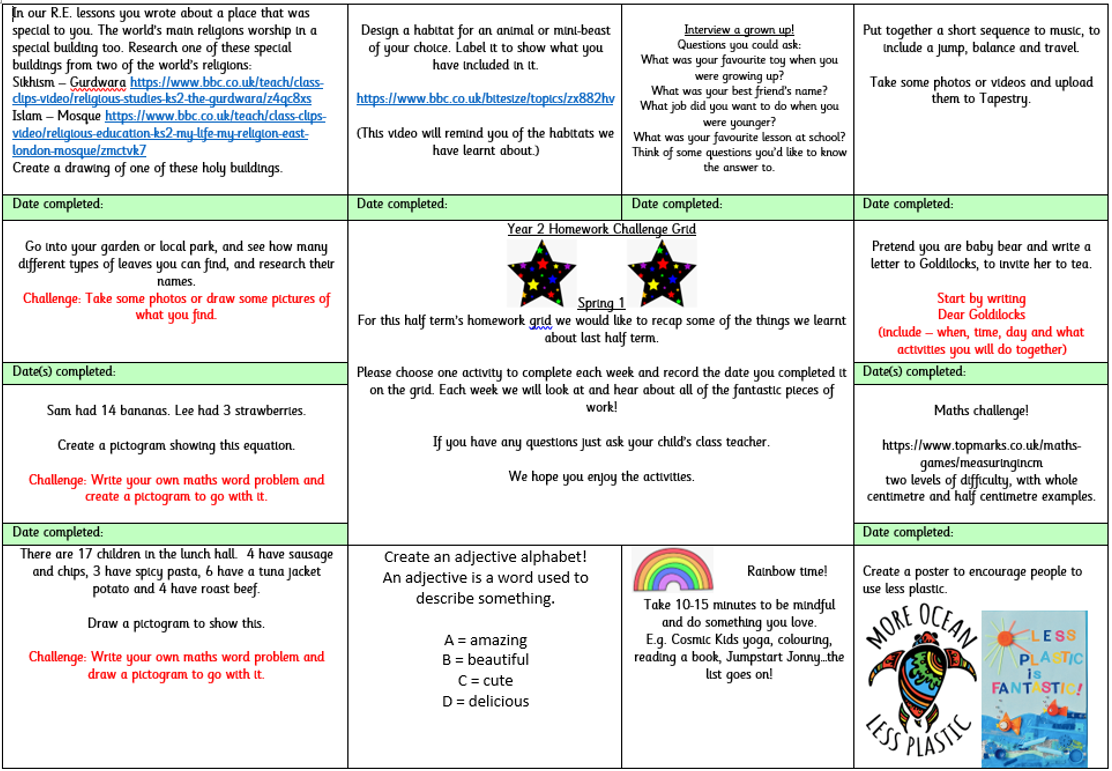Homework
Homework Rationale
In the primary phase, homework tasks are set each week for all students. Through regular and well planned tasks, Homework provides students with:
- an opportunity to consolidate and practise learned skills and concepts
- opportunities to refine and extend their knowledge and skills
- an opportunity to acquire the habits of mind needed to study and learn independently (as required in secondary education)
- the valuable experience of working to deadlines
- the opportunity to use materials and other sources of information that are not always available in the classroom
Homework also provides an opportunity for the child’s parents/carers to be involved in their child’s learning journey, keeping up to date with their child’s current learning.
The Nature of Tasks Set
Teachers give careful consideration to the tasks they set and their purpose. Homework tasks are never set as an after-thought; they are an integral part of the week’s lesson planning. Research shows that traditional models of ‘homework’, when a child is set a series of questions to work through, have little to no impact upon learning and in some cases have a negative impact. Children can see the exercises as pointless and lose enthusiasm in learning.
Effective Types of Home/Independent Learning
Exploration
This provides an opportunity for students to explore topics of their own interest and delve into an area of study in more detail than time allows for in the curriculum, so broadening their knowledge and allowing students to follow their own line of enquiry. This type of Homework encourages students to develop their independence and love of knowledge. They find things out for themselves and therefore have a far greater ownership over what they have learnt.
Preparation
Homework works best when students are allowed to prepare for a topic or an area of learning in advance. Students may be given a specific task to complete and/or some pre-reading before starting a new topic or lesson. Preparation helps to develop the children’s confidence before a lesson is taught enabling them to participate in discussion work more easily and confidently. It can also ignite a child’s interest in a subject, stimulating questions and hopefully leading a child to want to explore a topic further.
Practice
Some aspects of learning simply require practice, such as reading and recalling facts. Some Homework tasks provide students with an opportunity to practise a skill, e.g. practising their times tables in maths, practising to read particular words in phonics, practising handwriting skills etc. These tasks are designed to provide the opportunity for increasing speed and improving accuracy and fluency. When Homework is assigned for the purposes of practice, it should be structured around content with which the students have a high degree of familiarity. Practising a skill with which a pupil is unfamiliar is not only inefficient but might also serve to habituate errors or misconceptions. Skills should be learnt to the level that students can perform them quickly and accurately. Research tells us that it is not until students have practiced upwards of about 24 times that they reach 80% competency. Practice needs to be deliberate, focused practice to ensure mastery. Hattie (2011) calls this ‘overlearning’: this is ‘what happens when we reach a stage of knowing what to do without thinking about it, reducing the load on our thinking and cognition, allowing us to attend to new ideas.’
Homework Challenge Grids
We have worked closely alongside parents and the children to develop a homework format that considers all of the points previously mentioned in this policy, whilst also ensuring that homework is manageable, enjoyable and beneficial for children and their families.
With all of the above points in mind, in the primary phase of the school we have developed Homework Challenge Grids. Every year group will be assigned a homework challenge grid at the start of every half term. These will include a range of tasks for the children to complete at home during that period. There will be more challenges than required so that children have a choice of task each week and can do more than the minimum required.
Evidence suggests that in order for students to retain information, they should regularly revisit learning. The grids are carefully planned for so that children recap on current learning and also revisit skills taught in the previous half term.
Some examples of the grids…



Reading Journals
Every child is issued with a reading journal to help record and track their reading progress and to share the child’s achievements between the School and home. Every child takes a reading book home that is matched to their reading level, one that they will be able to read with their parent/carer. The parent/carer will note how well the child has read on each occasion and any other comments that they want to communicate to the class teacher and teaching assistant. The reading books are changed every week by the class teacher/ LSA. Reception students are issued with a ‘phonics’ reading book as soon as they know several of the phonemes taught and they are beginning to work on the skill of blending these sounds to read words.
Children are expected to read every day. The minimum amount of reading should be three times per week.
Targeted Homework
If a pupil is at risk of not meeting their target or needs additional practice in any curriculum area, it is expected that the teacher will discuss this with parents and put together a Homework programme that addresses targeted areas. The teachers are responsible to make sure that homework is accessible for all of the children in their class.
Holiday Projects
At times, holiday projects may be set for children to complete with their families. The focus of the projects is to introduce students to new topics that will be taught during the subsequent half term and allow students to do some pre-learning and learning around the topic.
Monitoring the recording and completion of Homework Tasks
Completed homework will always be acknowledged by the class teacher. It is expected that teachers provide feedback for students when there are development points or misconceptions. This may be done through class discussion, brief individual comments or praise stickers/ stamps from the teacher to acknowledge the learning, depending on the task. Additionally, students may receive praise and recognition for their Homework through either house points or certificates in class.
It is the role of the LSA and teacher to check and keep a record that the Homework has been completed. The teacher should speak to a parent if their child does not submit their Homework.
If, after discussion with the parent/carers, a child persistently does not appear to be completing Homework, the class teacher will inform the Head of Primary School who will invite the child’s parent/carer into school to discuss the issue and to reinforce the policy and benefits gained from students having the support and opportunity to practise their learning at home.
Sanctions for non-completion of Homework do not usually apply for students in Reception or KS1 and are at the discretion of the Head of Primary School based on their knowledge of the child and their circumstances. Support may need to be considered and put in place if, for example, a child needs somewhere quiet at school to enable them to complete tasks or access to computers, books or other resources that may not be available at home.
As the children enter KS2 and progress through the school, we expect students to take more responsibly and accountability for their learning at home. Children will be expected to complete their homework in school if they do not complete tasks at home. This is in preparation for KS3 where an automatic 1-hour detention is issued for non-completion of Homework.
Parental involvement in Homework
Research shows that one of the key indicators of a pupil’s success at primary school is the level to which parents/carers engage in their child’s learning. Parents/carers have an important role to play in supporting their child with their Homework; for our students to achieve success, we need parents to take an interest in what their child is learning.
At The Beaulieu Park School, we build close links with families and work in partnership with them help every child achieve success. We give clear guidance to parents/carers and publish our topic overview on the school website every half term (from Year 1 upwards).
In addition to this, parents and carers will be invited in for learning workshops and there will be parent guides on the school website.
Parents/carers can support their child with his/her Homework activities by:
- helping to set up a consistent and organised place for them to complete tasks at home
- helping them to establish a regular routine for the completion of Homework tasks
- encouraging, motivating and prompting students to complete their tasks on time
- talking to them about their learning, their interests, what they want to find out and how they plan to complete their tasks
- suggesting resources, strategies that will challenge and extend their child’s ideas
- helping to make links to real life e.g. visiting a park, museum etc. and helping the children link their learning to their experiences
- talking about which tasks they found straightforward, which were difficult, how they coped with the challenge, what they learnt etc.
- ensuring that they stop working at bedtime
- letting the relevant teacher know if they experience significant difficulty or if there were reasons for not completing independent learning tasks on time etc.
- attending parent workshops to discuss strategies and gain ideas and advice
Whilst we fully encourage parental engagement and support, equally we would expect that students work with incremental independence over time. By Year 5 and 6 we want the children to become prepared for secondary learning and more autonomous Independent Learning.
Recommended Homework per Year Group
|
Year group |
|
Daily tasks |
Weekly tasks |
|
Reception |
15
minutes |
Reading for 10 minutes Common exception word reading (5 minutes) |
At least 1 piece of work from the Homework Challenge Grid. |
|
Year 1 |
|
Reading for 10-15 minutes Spellings 5-10 minutes (from the summer term) |
At least 1 piece of work from the Homework Challenge Grid. |
|
Year 2 |
|
Reading for 10-15 minutes Spellings 5-10 minutes |
At least 1 piece of work from the Homework Challenge Grid.
Times tables from summer term |
|
Year 3 |
|
Reading for 15+ minutes Spellings 5-10 minutes |
At least 1 piece of work from the Homework Challenge Grid.
Times tables |





